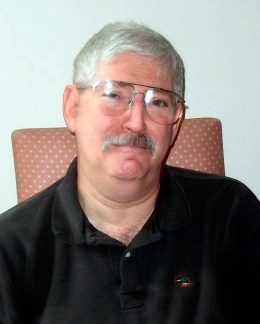
Robert Levinson
The Associated Press and the Washington Post published detailed stories today reporting that Robert Levinson, the retired FBI agent who went missing in 2007 on the Iranian island of Kish, was working for the CIA at the time of his disappearance.
The question of whether to publish the story presents a sharp and difficult journalistic choice: should the AP and the Post expose a rogue CIA operation that resulted in the removal of three agency analysts and punishment for several others even if it risks endangering Levinson, whose whereabouts are unknown? Or should they sit on the story, as they have been for several years?
Levinson’s family released a statement Thursday that seemed to support publication, or at least didn’t criticize it:
Bob is a courageous man who has dedicated himself, including risking his own life, in service to the U.S. government. But the U.S. government has failed to make saving this good man’s life the priority it should be. There are those in the U.S. government who have done their duty in their efforts to find Bob, but there are those who have not. It is time for the U.S. government to step up and take care of one of its own. After nearly 7 years, our family should not be struggling to get through each day without this wonderful, caring, man that we love so much.
But the White House, and Levinson’s home state Senator Bill Nelson of Florida, both criticized publication. NSC spokesperson Caitlin Hayden released a statement saying publication undermines Levinson’s chances for freedom:
Without commenting on any purported affiliation between Mr. Levinson and the U.S. government, the White House and others in the U.S. Government strongly urged the AP not to run this story out of concern for Mr. Levinson’s life. We regret that the AP would choose to run a story that does nothing to further the cause of bringing him home. The investigation into Mr. Levinson’s disappearance continues, and we all remain committed to finding him and bringing him home safely to his family.
Nelson told reporters on the Hill this morning that he had urged the AP not to publish the story.
The AP gave a lengthy defense of publication on its blog. AP’s executive editor said:
Publishing this article was a difficult decision. This story reveals serious mistakes and improper actions inside the U.S. government’s most important intelligence agency. Those actions, the investigation and consequences have all been kept secret from the public.
Publishing articles that help the public hold their government to account is part of what journalism is for, and especially so at The Associated Press, which pursues accountability journalism whenever it can. This seems particularly true on this subject at a time when the decisions of intelligence agencies are being extensively debated.
The AP has been seeking information on Levinson’s whereabouts from governments, agencies and any other source possible for several years. Government officials tell us that they, too, have hit a wall, though their efforts continue.
In the absence of any solid information about Levinson’s whereabouts, it has been impossible to judge whether publication would put him at risk. It is almost certain that his captors already know about the CIA connection but without knowing exactly who the captors are, it is difficult to know whether publication of Levinson’s CIA mission would make a difference to them. That does not mean there is no risk. But with no more leads to follow, we have concluded that the importance of the story justifies publication.
The AP’s position is undercut somewhat by its own assertion that the rogue operation was almost unique, and the fact that publishing the story could hurt Levinson’s chances for freedom, if he is still alive. However, the very thoroughly reported details of the story are worth reading before making the judgment.

